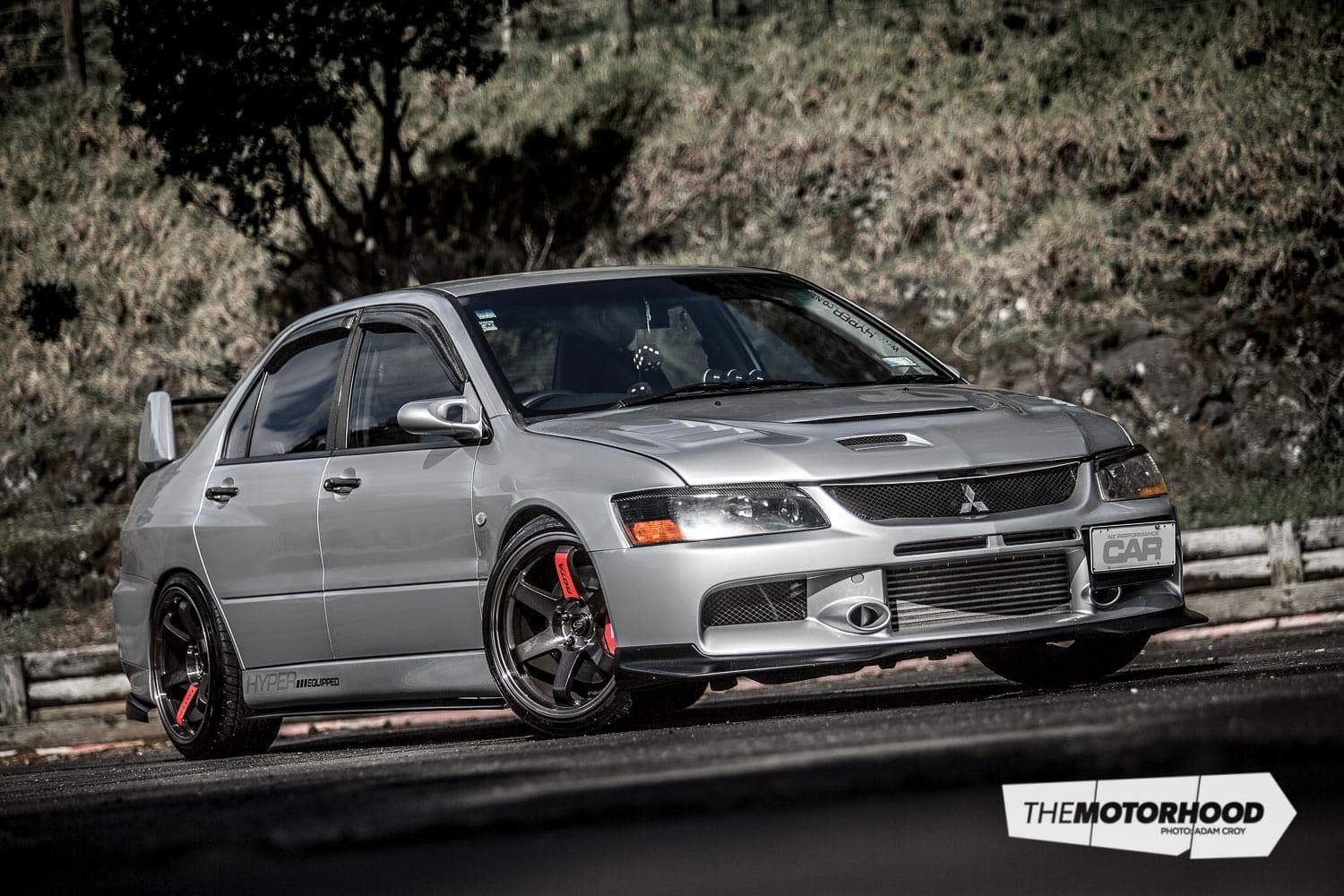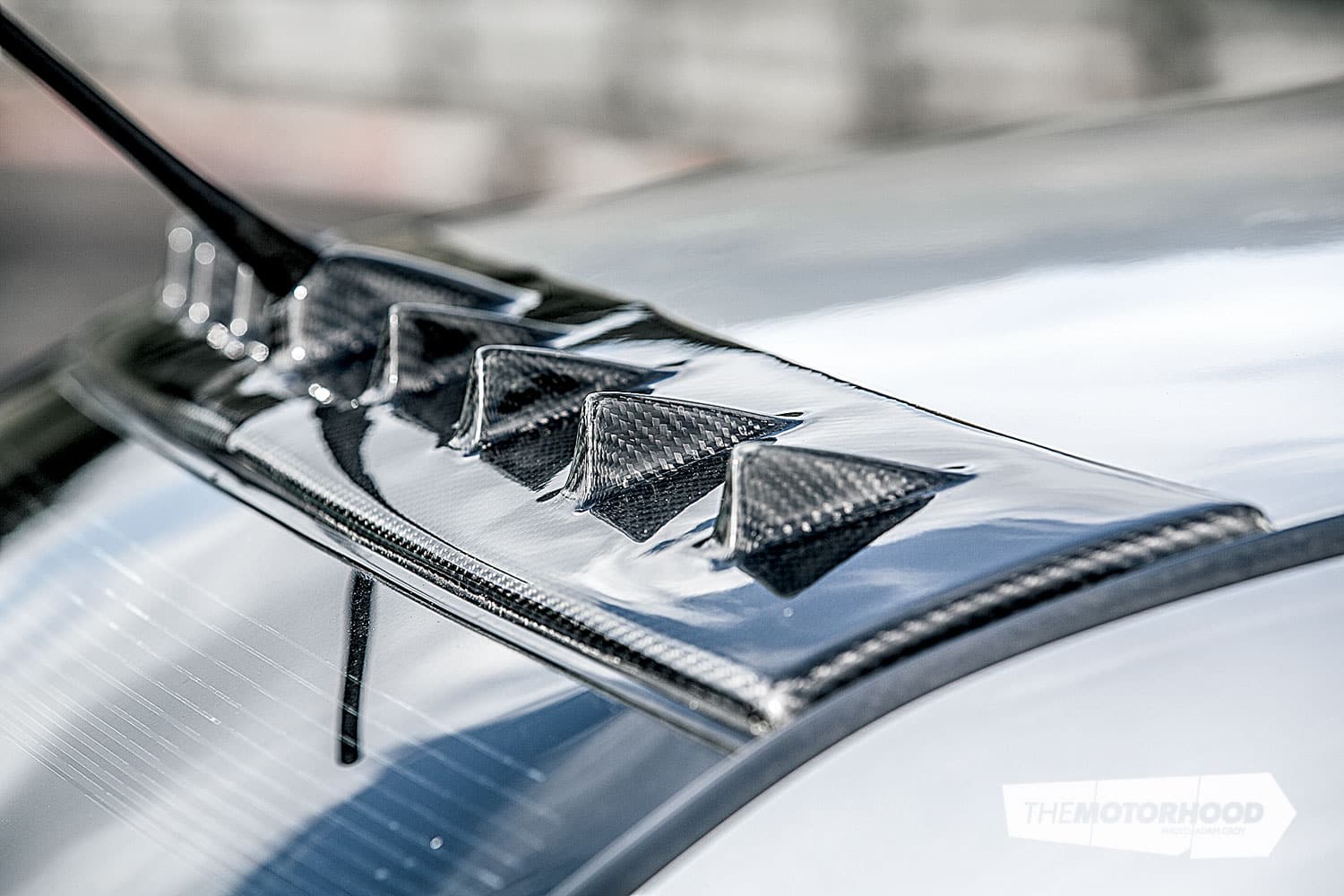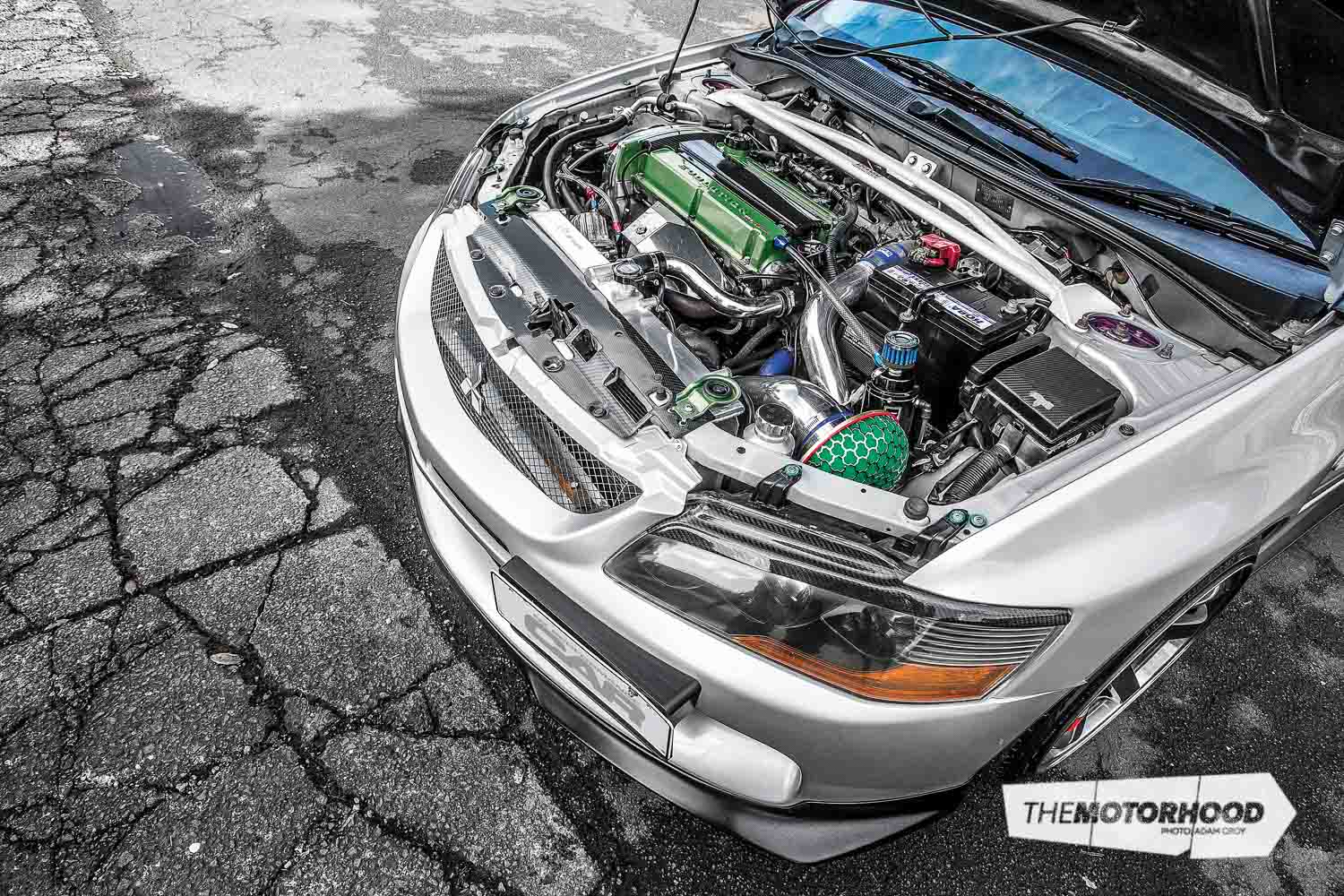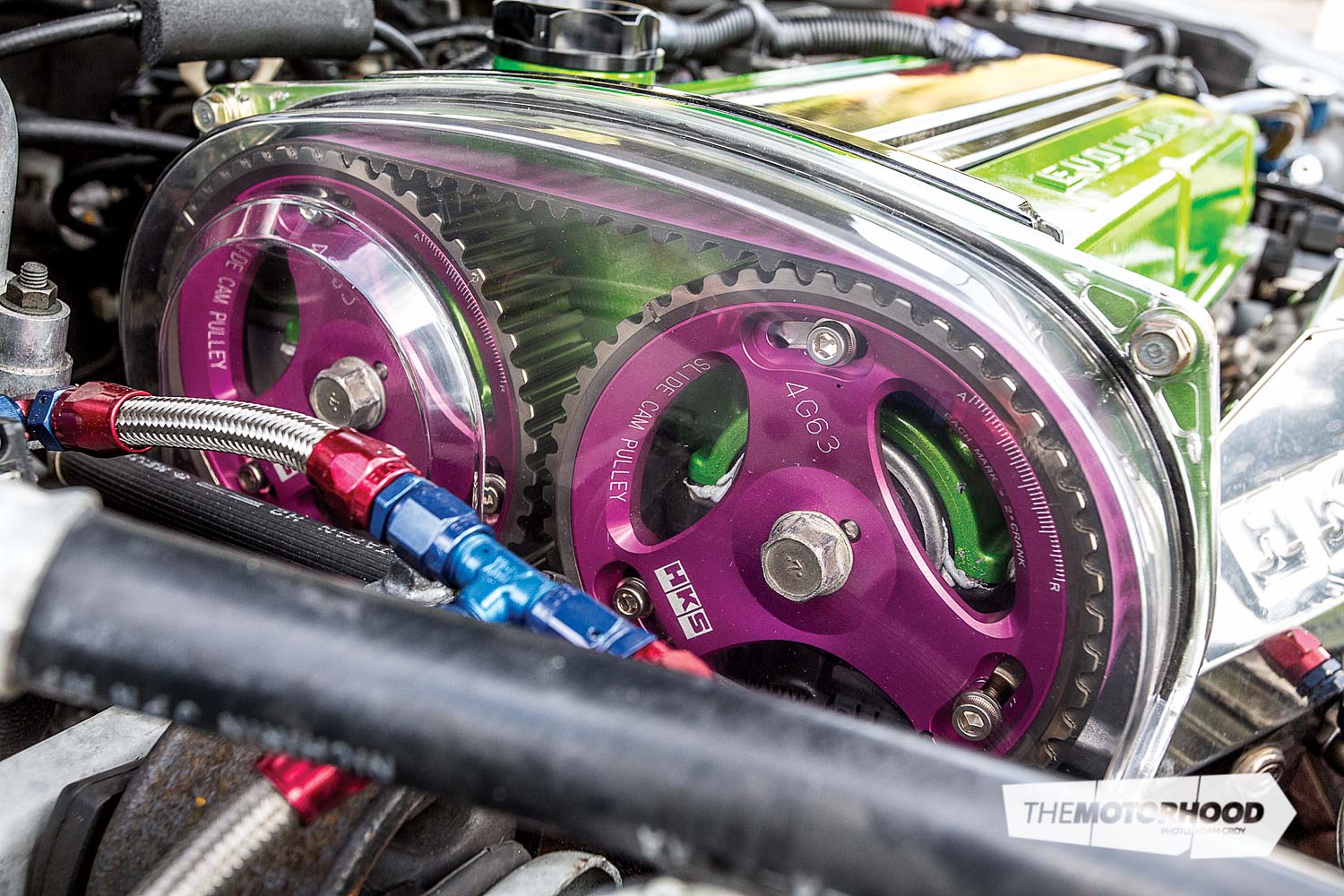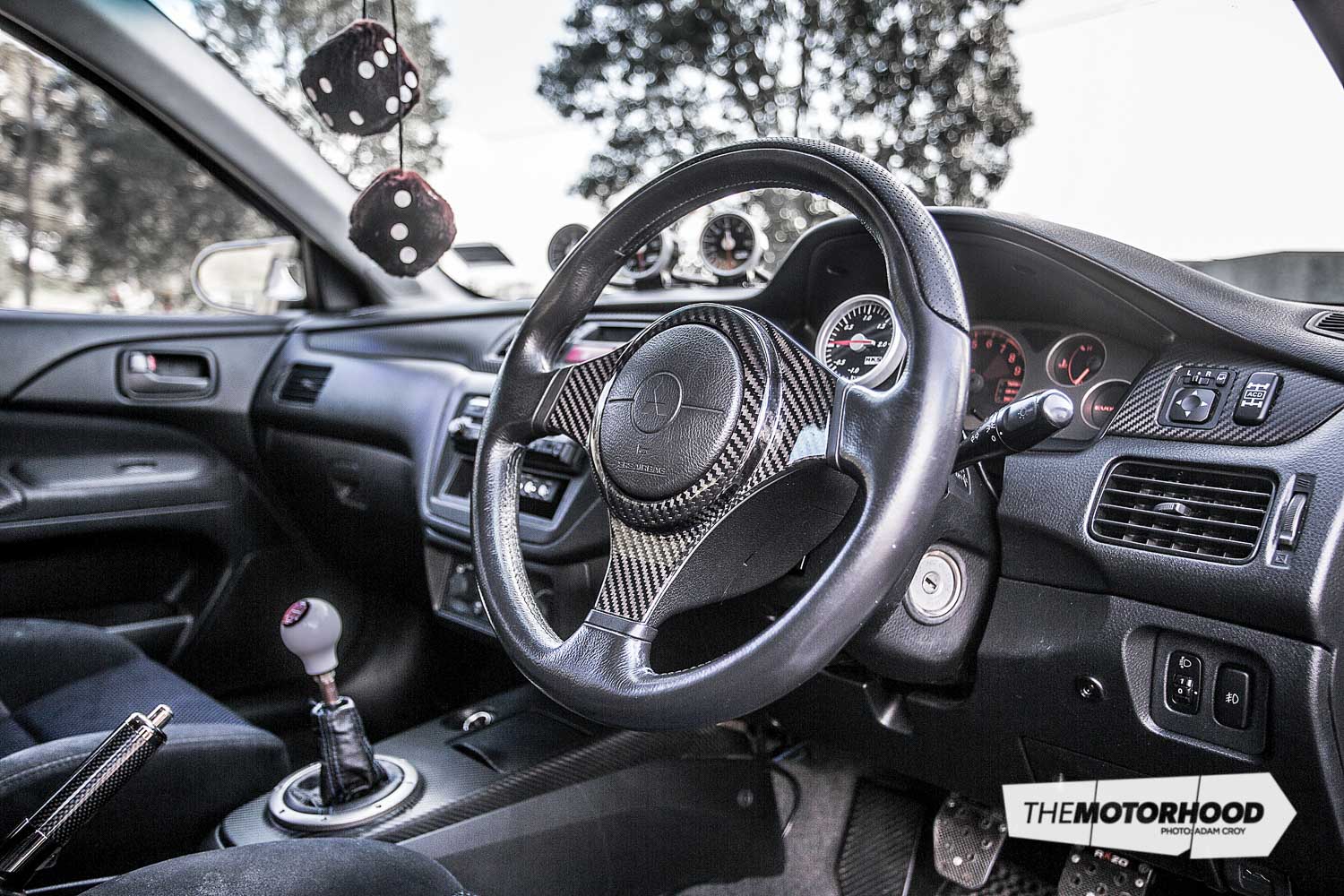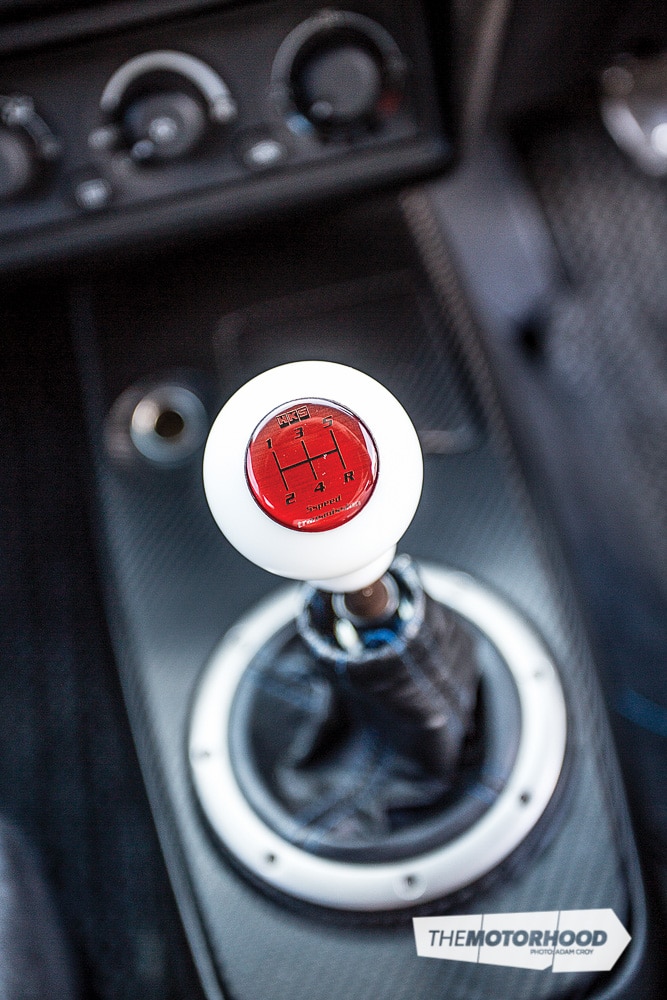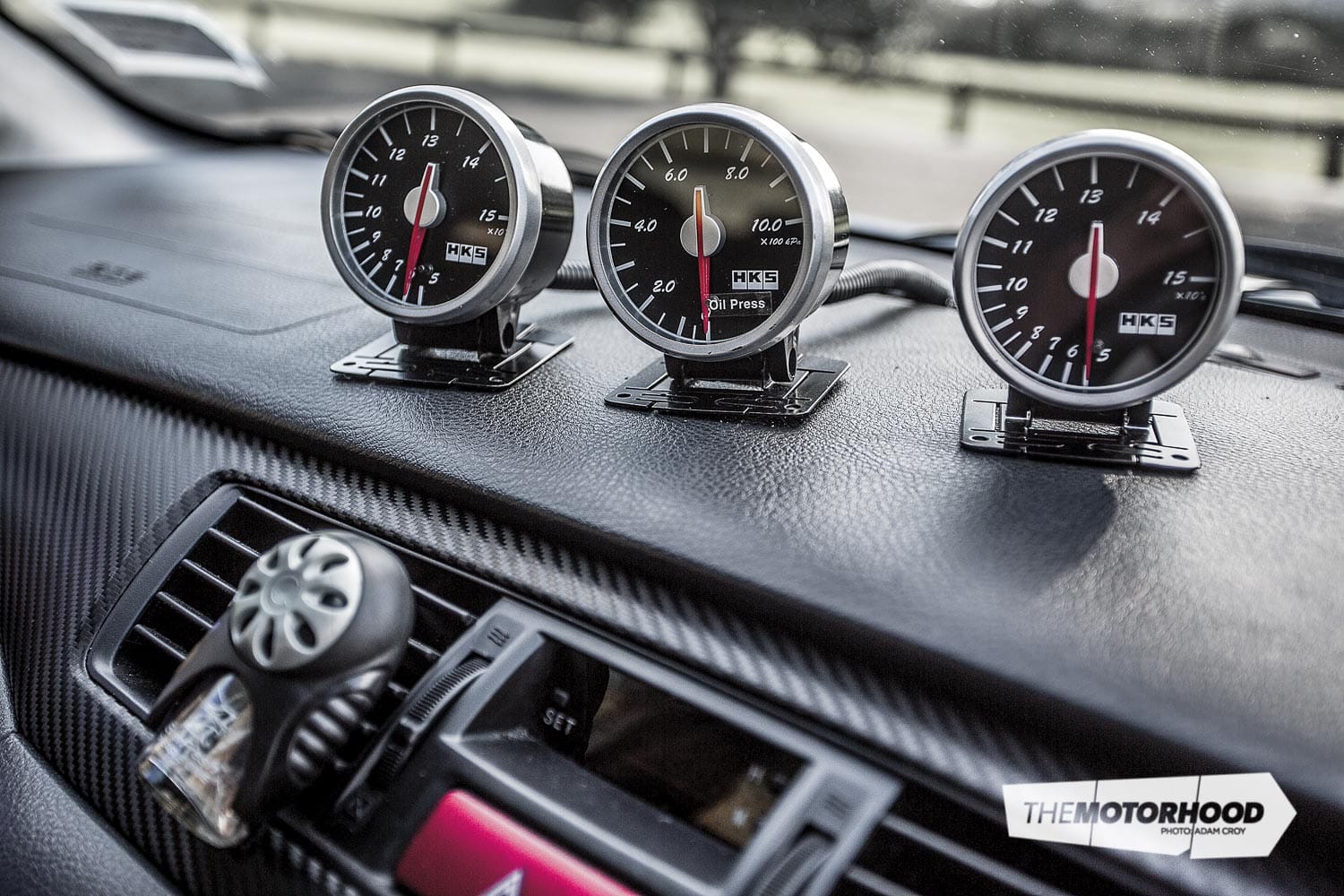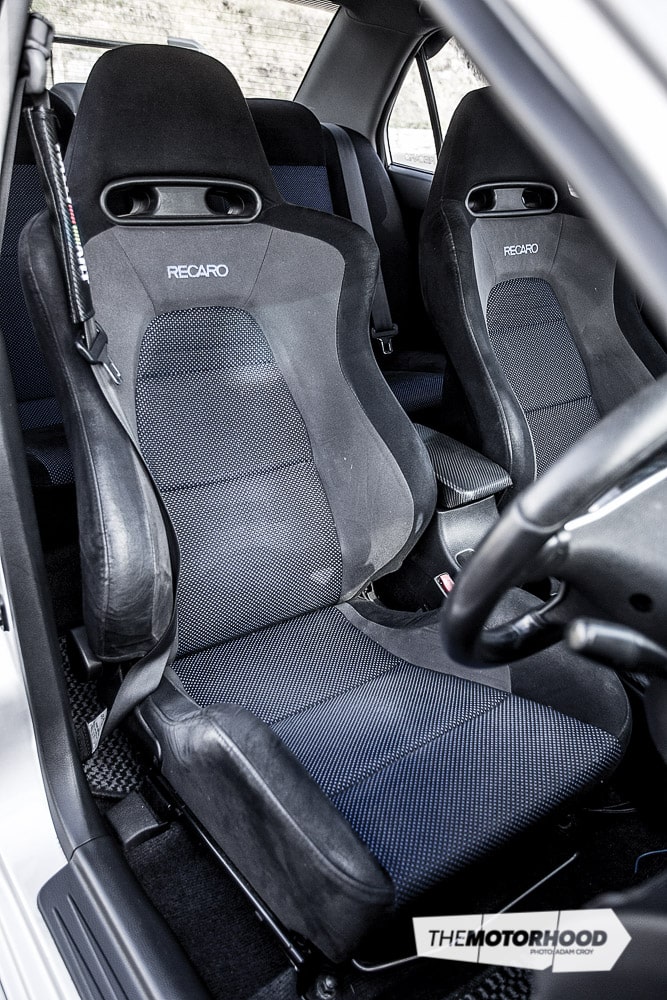data-animation-override>
“Not all builds are about huge and outlandish modifications; some guys like to keep things simple”
The Mitsubishi Evolution has been a Kiwi favourite for the better part of the last 20 years, from the early days of Enkei G-Zeros, underbody lights, and bright neon paintwork, through to finely tuned record-hunters competing the world over.
The Evo platform has long dominated in a gang of motorsport disciplines, so, naturally, asking the modern Evo owner what they want from their vehicle produces a mixed bag of answers, because the simple fact is, there is so much this platform has to offer.
But, for Edvin Prasad, with his 2001 Mitsubishi Evo VII, it was the allure of practical power figures, reliable engine work, and rapid response that sent him down the rabbit hole that is car modification.

However, his build didn’t start immediately. This was the first car Edvin had purchased in New Zealand, and he opted to enjoy it in stock form to get to know the car better, as it was a rare sight in his native country of Fiji.
But, it wasn’t long before he developed the itch to change things up, and what was meant to be a simple tidy around the edges turned into a rapid change of the exterior aesthetics, with a conversion to the later-model Evo IX front and rear bumpers, front lip, side skirts, carbon fibre bonnet, and spoiler. “When I did the bodywork, the car was all different colours, and I needed to match it, so I took it to the guys at GT Refinishers and got practically the whole car repainted in factory silver,” Edvin told us.
Carbon-fibre eyelids, window trims, and door handles were installed to help give an authentic early ’00s track-car feel, and after trialling a few wheel combinations with the updated look, the Evo VII now sits atop 18- by 9.5-inch Rota Grids in gunmetal grey wrapped with Falken rubber.
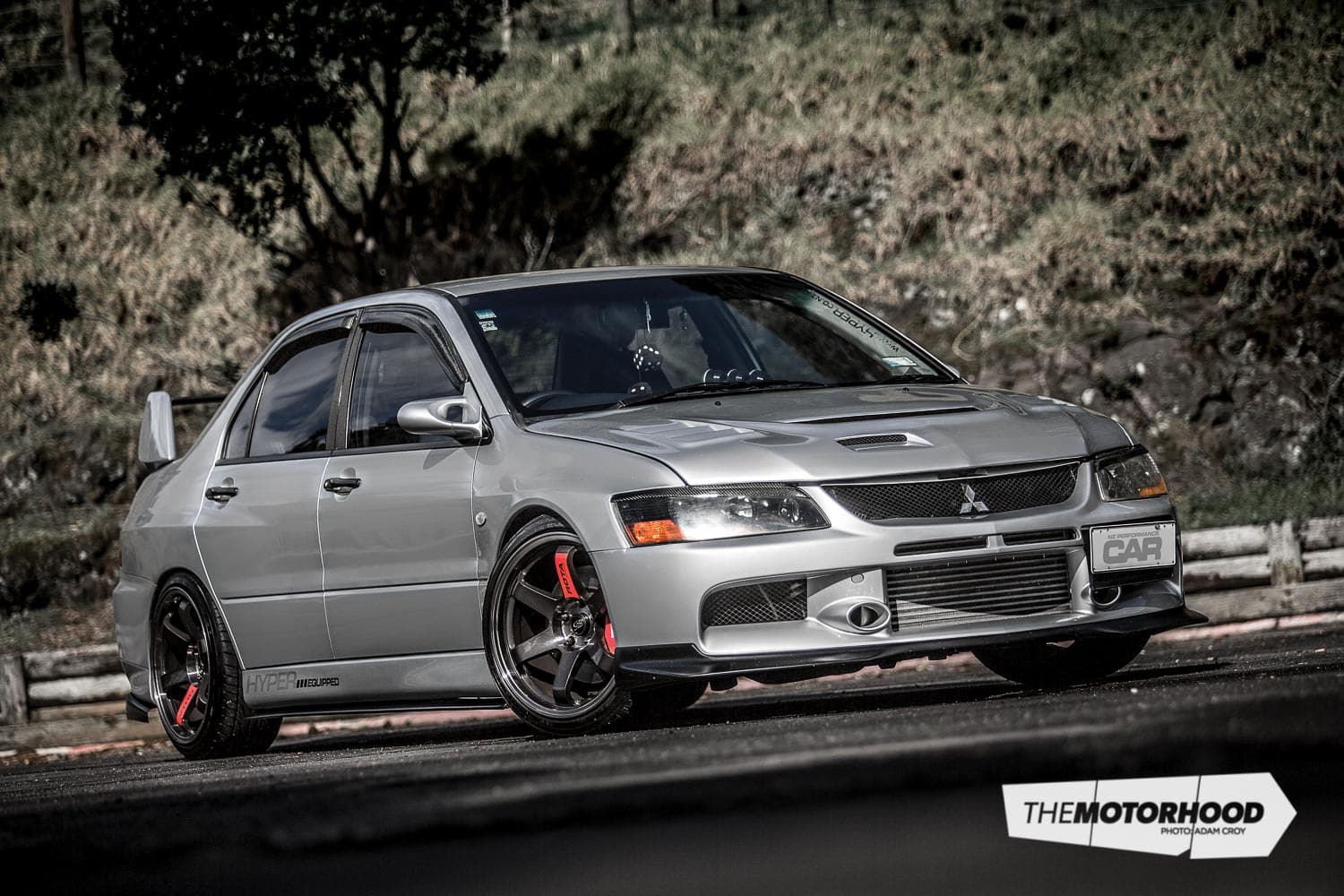
It was tempting to bring the ride height down to suit the current style of how-low-can-you-go builds, but it was set with function in mind for daily use. The CT9A chassis already provides exceptional handling from the factory, but, by throwing in a set of high-end HKS Hipermax V coilovers, you can truly feel each corner, braking in, powering out, and all the fun in between that leads to the next bend. After Edvin had made the outside look the part and got the handling dialled in, Jacky of Jtune Automotive was enlisted to work his magic on the motor.
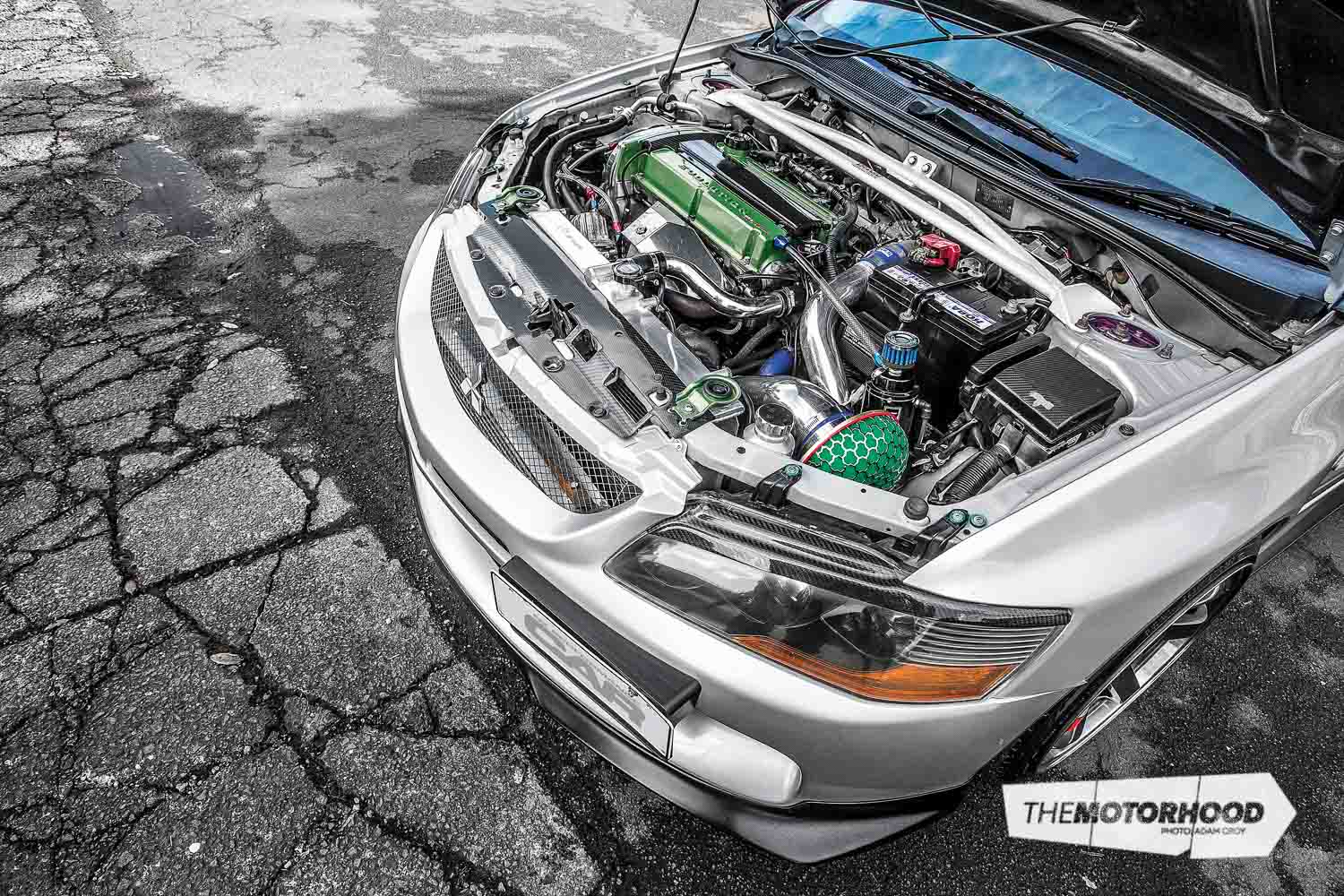
The initial engine build saw the 4G63 slapped with an HKS GT3037S turbo kit for a cool 270kW, and that was run as a quick, reliable set-up for the first few years.
“I wanted a full bolt-on package, drop in and go; I didn’t want custom this and that, because I had seen it happen with mates’ cars. That’s when things begin to break, and you end up with a result that’s not what you were expecting,” Edvin told us. “Jacky told me [that] if we kept it under 280kW, the engine will last. Which it did, until someone touched the boost-controller setting, and it ran enough boost to overpower the stock internals.”
Thankfully, the important parts were salvaged for the rebuild, and it turned out to be the perfect excuse to crack into a long list of upgrades that were already in the works.
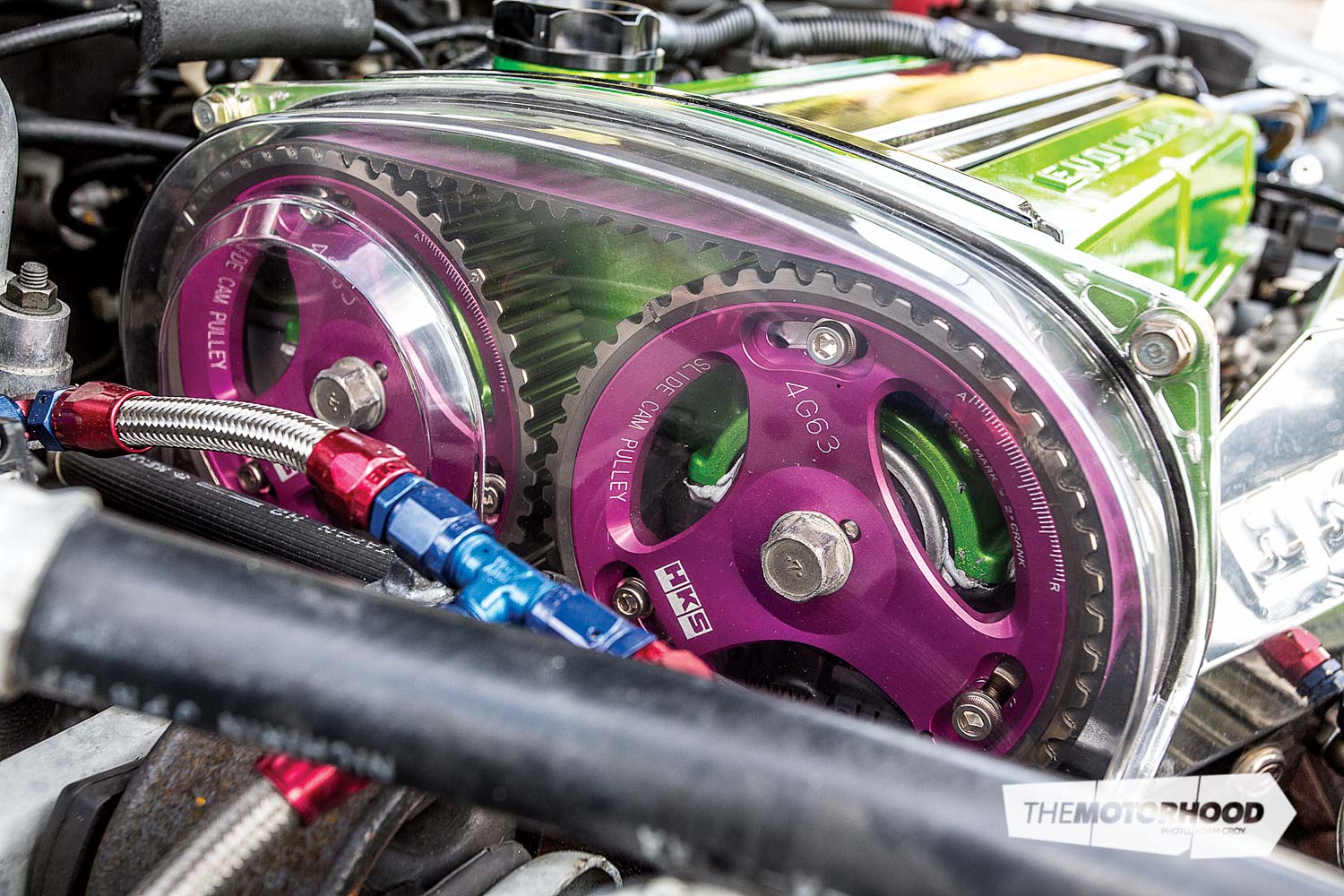
Drawing inspiration from the legendary HKS Japan CT230R Evo VIII, Edvin and Jacky worked hard to develop a reliable and responsive package. Using the same turbo kit from the original incarnation, an HKS back catalogue of parts was ordered for version two and paired up with the AMS 2.3 stroker kit that saw the engine capacity rise to 2300cc, plus a torque increase of up to 15 percent: it also allowed for faster turbo spool and ticked all the boxes in the chase for responsive power.
Said Edvin, “I was waiting for the engine to get tired before rebuilding anyway. Once the time came, I already knew I wanted to go with a 2.3-litre stroker kit with the same turbo set-up. We weren’t chasing big power but wanted responsiveness and no lag, without the need to run extreme boost pressures.”
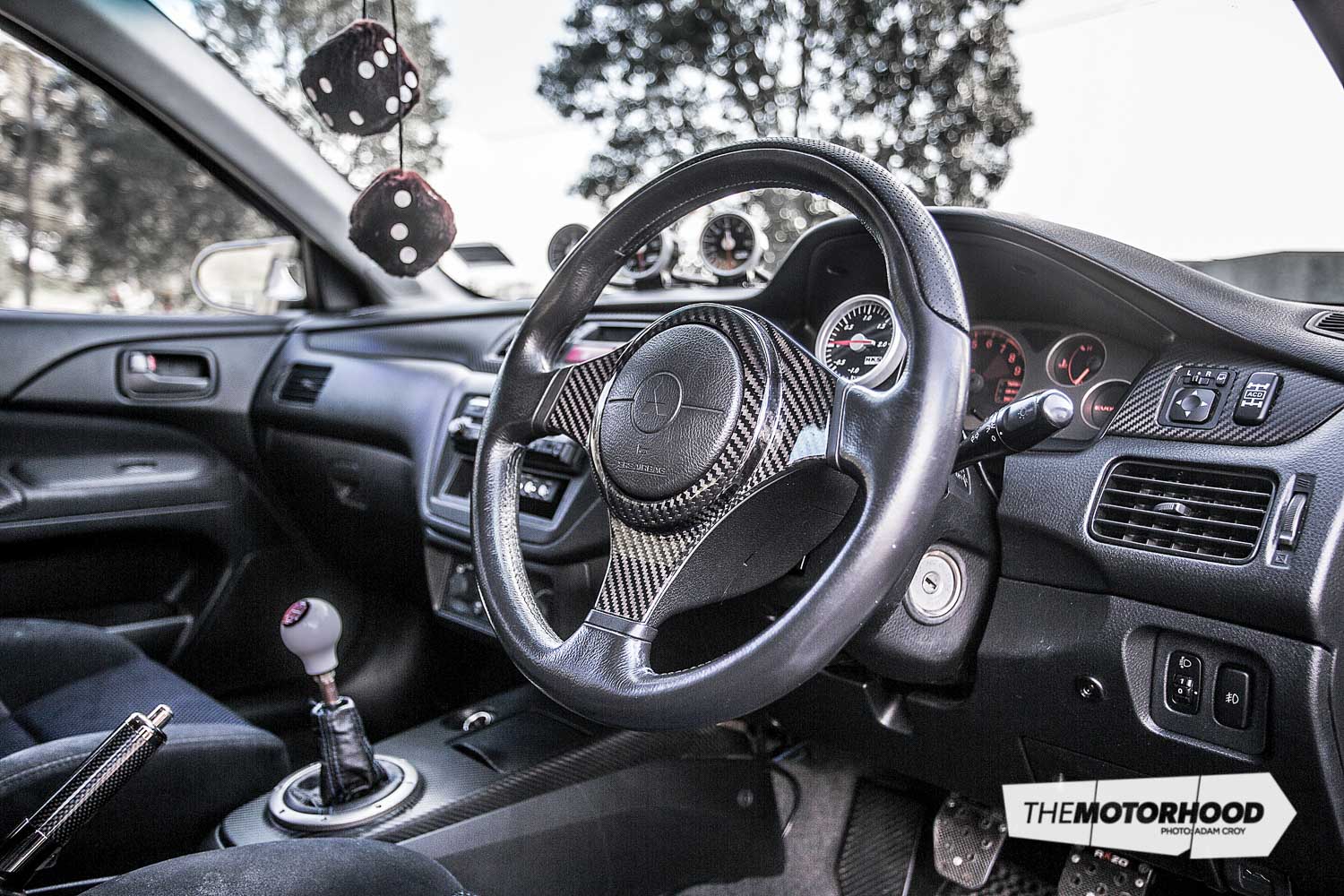
It made a final figure of 385kW (516hp) at the flywheel on 1.7 bar of boost tuned to run on 98 pump gas, and Edvin was stoked to see his car pushing the boundaries of what this already vicious 4WD platform had to offer. Even Jacky was impressed with the results they managed to achieve with the build, saying: “I was pretty amazed we could make more than 350kW with less than two bar of boost with this turbo on pump gas.”
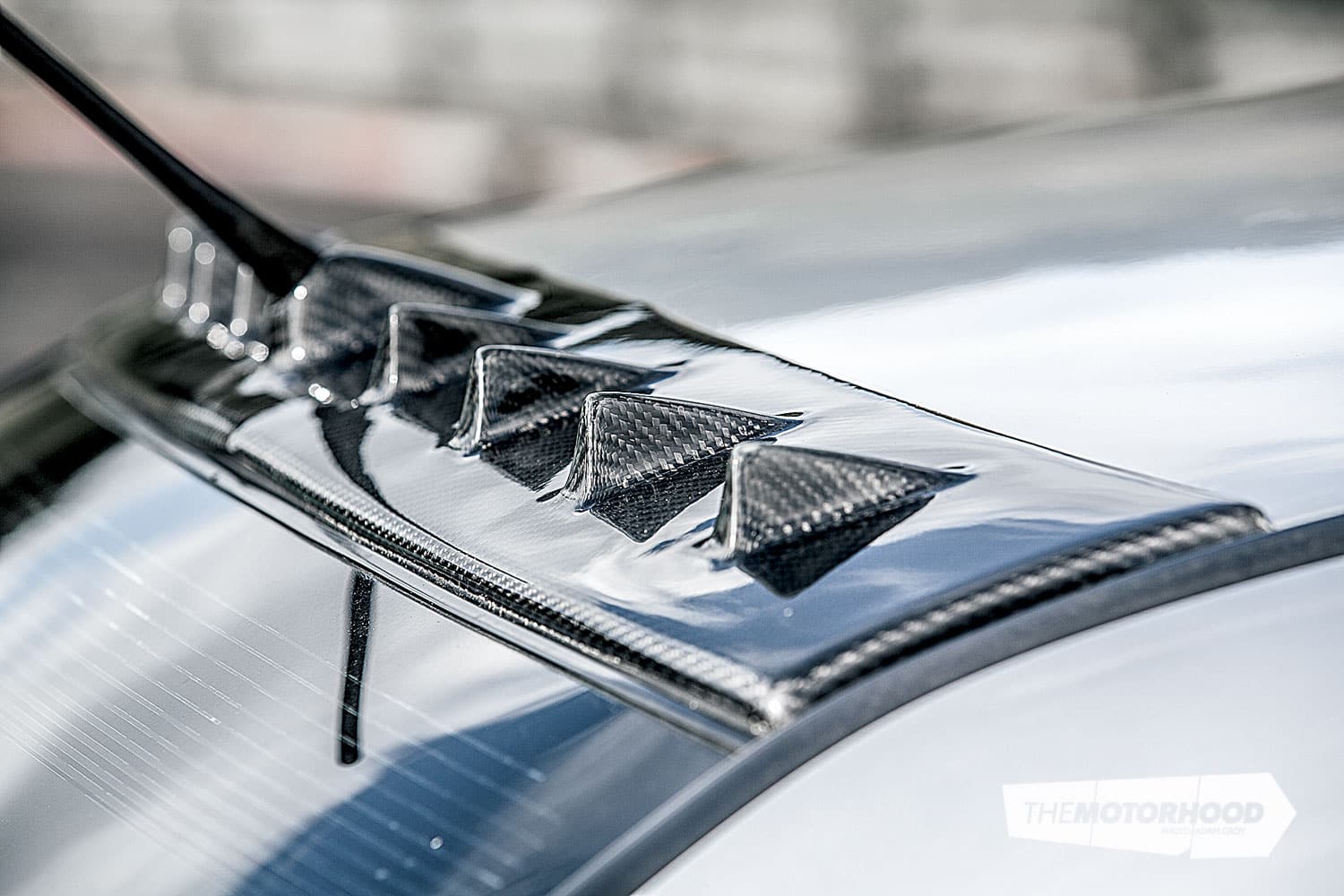
For now, the project appears to be wrapped up, and Edvin is content with using the Evo VII as a reliable, responsive weekend cruiser. “I have no intention of racing the car on the track. I’ll keep the same set-up as the engine has been like this for a long time now, and I really like it. It’s simple and clean,” he said. But, you never know when that modification bug will itch again, and he has already made mention of the hunt for that always-alluring extra power. Given the possibility of a sequential dogbox thrown in for good measure, only time will tell what the future holds for Edvin and his Evo.
2001 Mitsubishi Evo VII
- Engine: Mitsubishi 4G63, 2300cc, four-cylinder,
- Block: AMS 2.3 stroker kit, ARP main stud and head stud kit, upgraded oil pump
- Head: HKS 272 cams, HKS valvetrain, HKS cam gears, HKS head gasket, Jtune port and polish
- Intake: Jtune ported factory intake manifold
- Exhaust: HKS exhaust, HKS front pipe
- Turbo: HKS GT3037S turbo kit
- Wastegate: HKS Race 50mm
- BOV: HKS Super SQV4 Sequential
- Fuel: Injector Dynamics ID1000 injectors, AEM fuel pump, Sard fuel pressure regulator
- Ignition: HKS M45I spark plugs, NGK plug leads, D1 Spec ignition booster
- ECU: HKS F-CON V Pro
- Cooling: Aftermarket alloy radiator
Driveline
- Gearbox: Factory five-speed manual
- Clutch: Exedy Hyper twin-plate
- Flywheel: Exedy
- Diff: Factory
Support
- Struts: HKS Hipermax V coilovers
- Brakes: Factory Brembo
Shoes
- Wheels: 18×9.5-inch (-18) Rota Grid
- Tyres: 225/40R18 Falken FK452
Exterior
- Paint: Colour-matched body kit
- by GT Refinishers
- Enhancements: Evo IX front and rear bumpers, Evo IX spoiler, Evo IX side skirts, Evo IX front lip, Evo IX carbon-fibre bonnet
Interior
- Seats: Factory Recaro
- Steering wheel: Factory, carbon-fibre trim
- Instrumentation: HKS oil-temp, water-temp, oil pressure, and boost gauges
- Other: Carbon-fibre dash trim panels
Performance
- Power: 385kW (516hp) with 24psi at the flywheel — tuned on 98 pump gas

Driver profile
- Driver/owner: Edvin Prasad
- Age: 27
- Location: Auckland
- Occupation: Food processor
- Build time: Five years
- Length of ownership: Five years
- Thanks: Thanks to my supporting wife Sheena and to Jacky and the boys at Jtune Automotive
This article originally featured in the April 2016 issue of NZ Performance Car (Issue No. 232). Don’t miss out on having this mag in your collection. Grab one of the last print copies, or grab a digital copy below:







